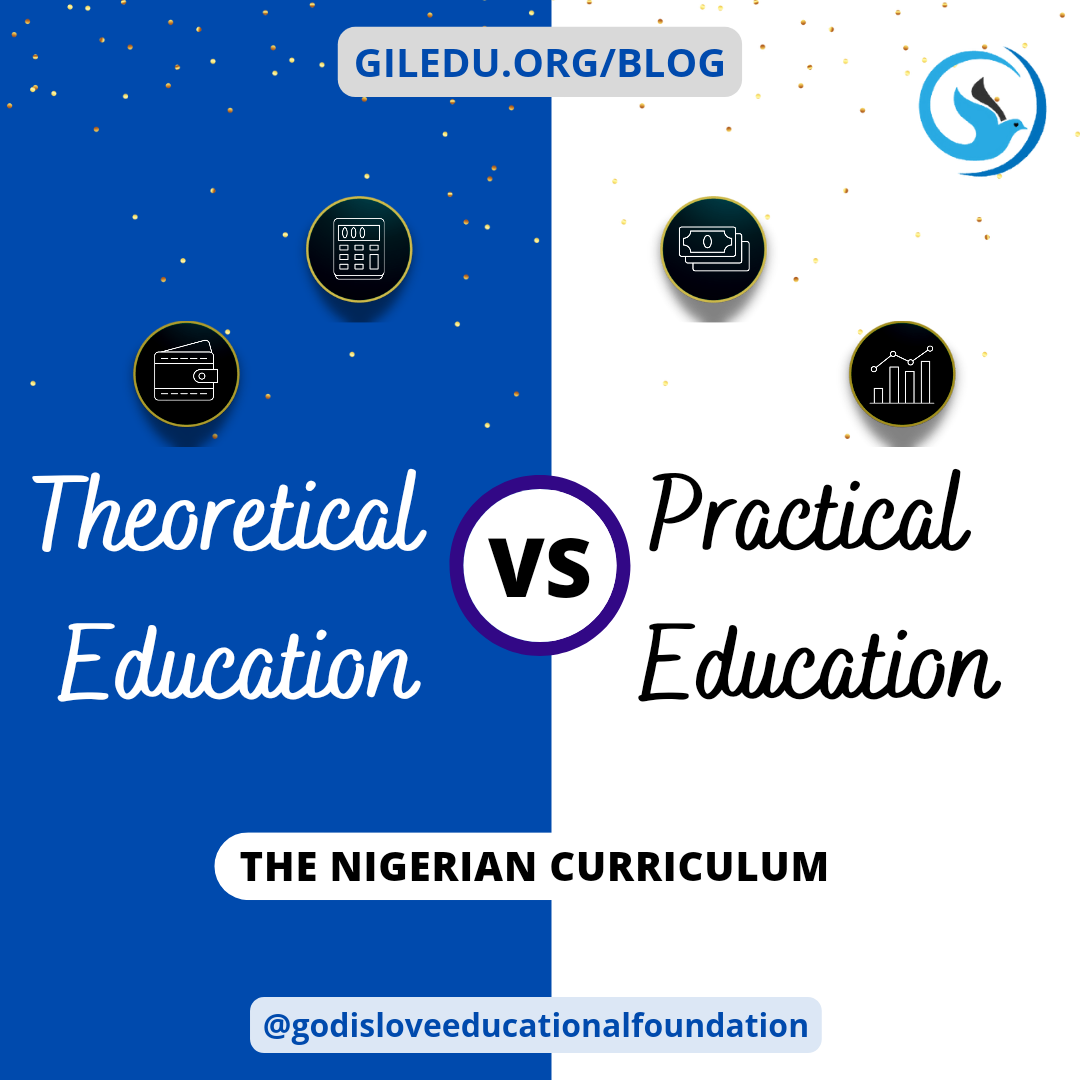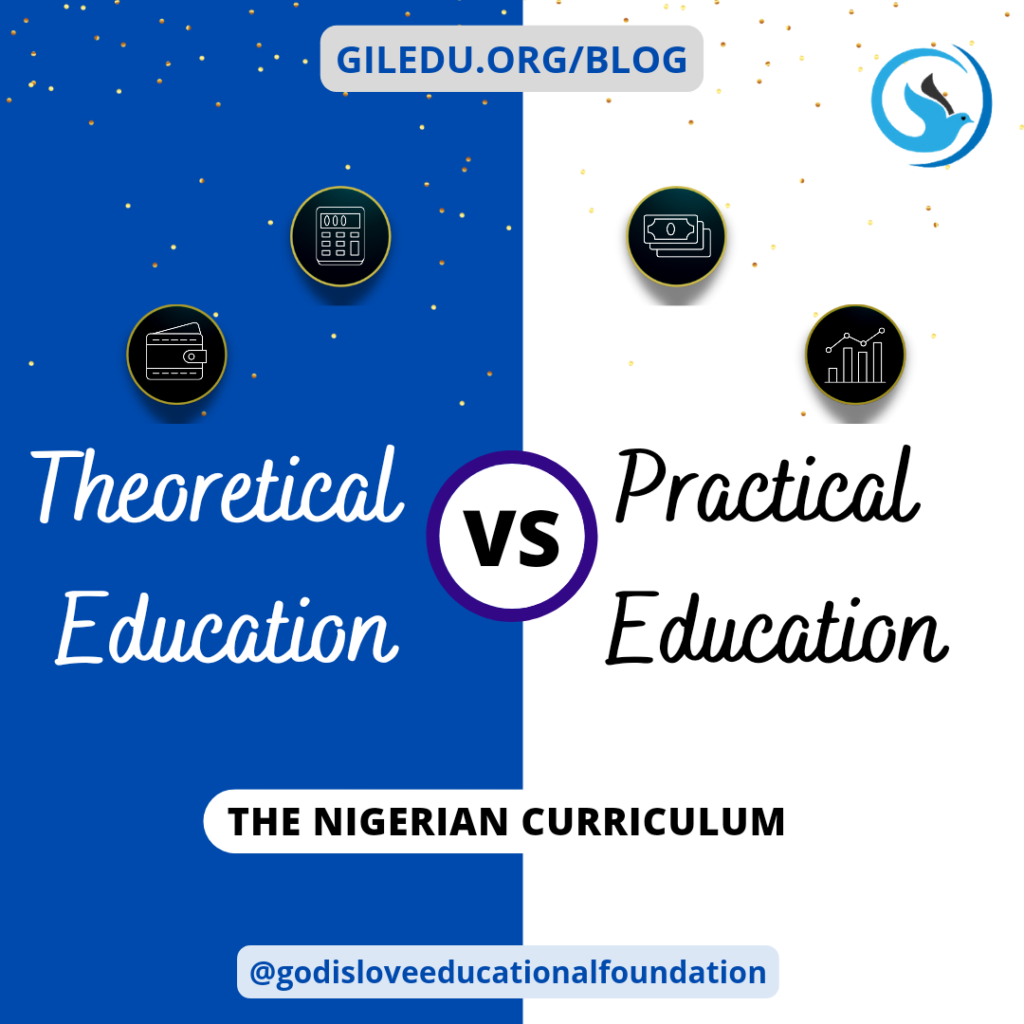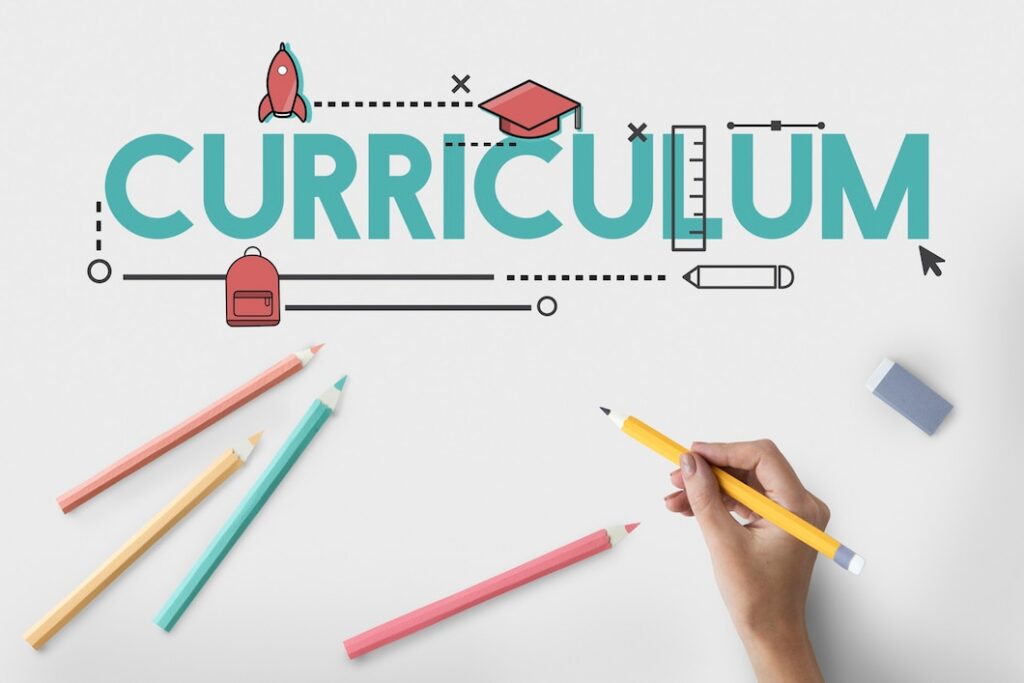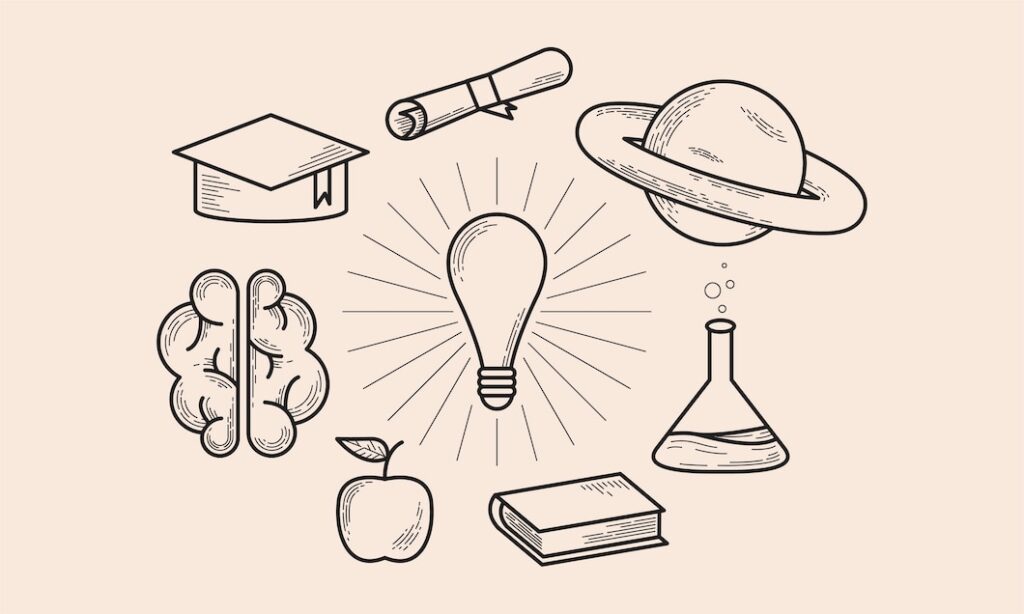
THE NIGERIAN CURRICULUM: STRIKING A BALANCE BETWEEN THEORETICAL AND PRACTICAL EDUCATION

According to The International Bureau of Education, “a curriculum is a description of what, why, how and how well students should learn in a systematic and intentional way”. Pitching our tent on this definition we can see that a curriculum involves “what and how well” students should learn. Should it include more practical than theory or vice versa? Only theory? Only practical? We will see as we journey whilst unveiling this topic.

Over the years, educational stakeholders have clamoured for a total overhauling of the Nigerian curriculum with some of their claims pointing towards its’ archaic nature. Following this, the curriculum was reviewed with considerations of the Nigerian people needs and international standards being put in place. Acquisition of various skills to fit this digital world was not overlooked either. At the moment, processes to implement this new curriculum are being carried out by bodies under the Federal Ministry of Education like the e.g., Nigerian Educational and Research and Development Council (NERDC).
According to Professor Kasali Adegoke in his 2003 inaugural lecture at the University of Lagos, “theory and practice are interwoven in the field of curriculum and a good theory when applied should enhance practice”. In a nutshell, a sound curriculum should produce better students that can actually practice what they have learnt by having the confidence to replicate it in real life. This brings us back to our questions “what and how well?”.

It is an obvious fact that theory and practical makes up methods of learning in schools: with the both having its various impactful advantages. Also, for practice to be enhanced, both theoretical and practical learning should be of high quality and balanced.

Theoretical aspect of education involves learning through others wealth of knowledge via textbook and various similar materials with Continuous Assessment and Examinations used to test various theoretical concepts. The disadvantage of this method of learning is that student can easily forget what they have learnt in matter of months or a few days and even in passing exams, students can just browse through their materials, memorize and replicate in their examination booklets. This is a popular saying in most Nigerian schools that effectively summarize this – “la cram la pour”, translated contextually as ‘you cram, you pour’. Another disadvantage of only theoretical learning is that students trained cannot be very sound students in their fields.

On the other hand, practical learning involves, “gaining information with sensible expertise/realistic expertise (expertise means expert skill or knowledge in a field)”. Presenting some of its advantages they include: captivating pupils’ interest, giving a much deeper impact, putting ideas to use, improving skills and being equipped for real life styles.
In conclusion, it can be seen from the above that one aspect cannot be sacrificed for another. Theory without practical is under-utilizing students’ potential and practical without theory is non-existent. It can be seen that the both go hand in hand to produce better students. Does the Nigerian Curriculum strike a balance between practical which is the “do it yourself method of learning” and theory a 100%? Well, I can’t say. Even if it exists, Nigerian schools are currently hit with the bombshell of underfunding and poor infrastructures. Drawing a final conclusion here, I will like to reinstate the fact that theory in any sphere of educational learning should be complemented appropriately with practical to produce sound and competitive students.
Esther Adeyemo,
The Editorial Team,
God Is Love Educational Foundation.

This is a publication of God Is Love Educational Foundation. Thank you for taking out time to read this enlightening article. We hope you enjoyed it? Kindly leave your comments in the box below. Thanks!




